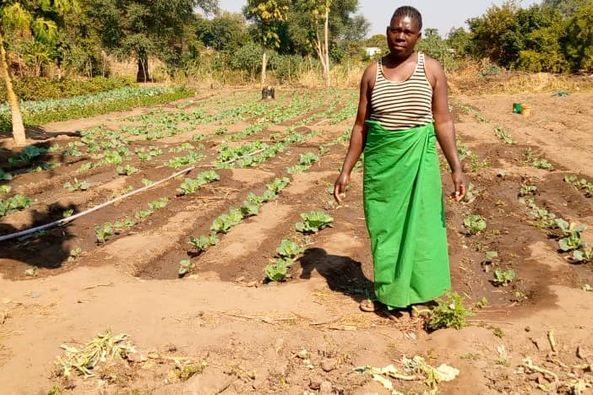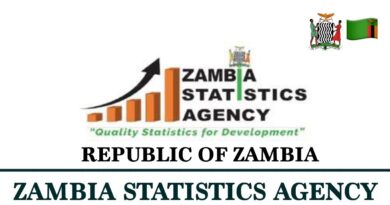Resilient Farmer in Sinazongwe District Uses Innovative Gardening to Overcome Drought
As Zambia grapples with a severe drought affecting agriculture, water, energy, and food security, millions of lives are at stake, particularly in the most vulnerable and marginalized communities.
Sinazongwe District is one of the 84 districts hardest hit by this crisis, with families struggling to secure even three meals a day and maintain household incomes. However, amidst these challenges, some individuals are finding innovative ways to support their families and communities.
Linah Ndangwa, a resident of Sipumina Village in Sinazongwe District, has turned adversity into opportunity. Utilizing the water from the Sibbe Stream in Maamba, Ms. Ndangwa has established a thriving garden as a resilience strategy.
Married with eight children, she has cultivated a large garden near the stream, planting a variety of vegetables that she harvests daily. Selling her produce at the local market and to marketeers on a wholesale basis, she earns between K150 and K200 per day.
Ms. Ndangwa credits her success to the training she received from the Kuzunda savings group, which was facilitated by the Center for Environmental Justice (CEJ). The training emphasized business skills and the importance of creativity in entrepreneurship, teaching participants to view farming as a business.
This knowledge has enabled Ms. Ndangwa to provide for her family’s needs, including education and healthcare, and to consistently save money each week.
Her daily routine involves hard work in her garden—planting, watering, and protecting her crops from animals like goats, pigs, and cattle. Her dedication and resilience have allowed her to reinvest in her garden, purchasing and planting more vegetable seeds.
Ms. Ndangwa’s story is a testament to the power of resilience and innovation in the face of adversity. While the drought continues to pose significant challenges, her gardening initiative offers a glimmer of hope and a model of sustainable livelihood for others in the community.
Her success highlights the importance of support and training programs like those provided by CEJ, which equip individuals with the skills and knowledge to adapt and thrive even in difficult circumstances.



